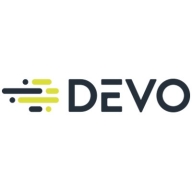

Sentinel and Devo are prominent products in the field of security and data analytics. Devo generally seems to have the upper hand due to its comprehensive features and overall user satisfaction, despite Sentinel's competitive pricing and support.
Features: Sentinel users highlight its robust security monitoring, seamless integration capabilities, and competitive support options. Devo users mention its extensive analytics tools, real-time data processing abilities, and advanced threat detection features.
Room for Improvement: Sentinel users mention difficulties with scalability, occasional system lags, and limited analytics features. Devo users point out the need for improved documentation, a more intuitive learning curve, and enhancements in system integration.
Ease of Deployment and Customer Service: Sentinel's deployment process is straightforward, backed by responsive customer service. Devo's deployment is more complex, but their strong customer support helps mitigate related challenges.
Pricing and ROI: Sentinel users find the setup cost reasonable with good ROI due to its cost-effective nature and solid performance. Devo's higher setup costs are justified by its superior feature set and comprehensive capabilities, resulting in satisfactory ROI.
Integrations with other sandboxes could be improved to better interpret data using AI and machine learning models.
Price is always a consideration, so the price would be nice if it were lower.
They nearly always bill it in dollars, so if it can be billed in our currency, that would be helpful and fixed in our currency.
When they see a spike in a line chart for a failed login, which could be a true or false attempt, they can click that spike, and a table widget on the same active board instantly populates with raw logs of data for those specific failed logins.
Sentinel's best features include that it's a very easy product to use.
| Product | Market Share (%) |
|---|---|
| Sentinel | 3.4% |
| Devo | 1.1% |
| Other | 95.5% |

| Company Size | Count |
|---|---|
| Small Business | 8 |
| Midsize Enterprise | 4 |
| Large Enterprise | 11 |
| Company Size | Count |
|---|---|
| Small Business | 9 |
| Midsize Enterprise | 3 |
| Large Enterprise | 7 |
Devo is the only cloud-native logging and security analytics platform that releases the full potential of all your data to empower bold, confident action when it matters most. Only the Devo platform delivers the powerful combination of real-time visibility, high-performance analytics, scalability, multitenancy, and low TCO crucial for monitoring and securing business operations as enterprises accelerate their shift to the cloud.
Sentinel is a full-featured Security Information and Event Management (SIEM) solution that simplifies the deployment, management and day-to-day use of SIEM, readily adapts to dynamic enterprise environments and delivers the true "actionable intelligence" security professionals need to quickly understand their threat posture and prioritize response.
We monitor all Security Information and Event Management (SIEM) reviews to prevent fraudulent reviews and keep review quality high. We do not post reviews by company employees or direct competitors. We validate each review for authenticity via cross-reference with LinkedIn, and personal follow-up with the reviewer when necessary.